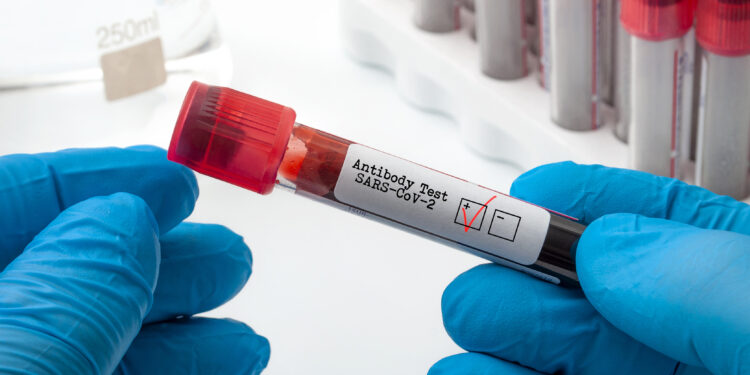Antibody study: the immunity by made COVID-19-disease
Always read that people who have a COVID-19-disease are at least temporarily against the novel Coronavirus SARS-CoV-2 immune. In a new study, it has now been shown to actually an immune response to previous disease. However, not all of the Infected have developed antibodies.

“Currently, there is no evidence to suggest that people who have recovered from COVID-19 and antibody, are protected from a second infection,” warns the world health organization (WHO). In addition, all of the Infected antibodies do not form, as a new study from Germany has shown. However, the scientific study also provides evidence of immunity by made COVID-19-disease.
Study on the development of immunity after a COVID-19 infection
According to a communication of the University of Lübeck to the Board of health of the Hanseatic city of Lübeck has carried out a scientific study on the development of immunity after a COVID-19 infection.
Prof. Dr. Solbach, former head of the Institute for Medical Microbiology and Hygiene, University of Lübeck, is currently scientifically in the Department of health and Co-author of the study, which was published in the medical Preprint-Server “medRxiv”.
What amount of anti-body levels are detectable
Numerous research projects are currently investigating whether and in what concentration with the Coronavirus SARS-CoV-2 infected individuals develop antibody and subsequently defense mechanisms, and may be immune to a re-COVID-19-disease.
The Serum levels of antibodies, the differences in Immunoglobulin A (IgA) and Immunoglobulin G (IgG) and measured, were determined in Lübeck, in a first examination period until the end of April 2020 for a total of 110 laboratory-confirmed cases, according to the case definition of the Robert Koch Institute (RKI).
The aim of the study the study, at which time after infection and the amount in which antibody levels are detectable it is. Also important is the question of how long the antibodies remain in this concentration to be detectable.
Only when the body forms a sufficient number of antibodies, you are protected from a recurrence of the disease with the same Virus.
Most of the infections mild-to-moderate
In addition, the lübeck-based health has been compared to velvet the results of the antibody determinations, and the clinical symptoms of the patients.
According to the figures, the COVID-19 symptoms was 84 percent of the Studied mild-to-moderate. Ten percent of the Examined clinical signs were completely absent. The average age of onset was 51 years; Women were slightly more likely to be affected than men.
Within 50 days after infection, were detected in 84 of the 110 Patients (76 percent), antibody levels to IgA), 78 of the 110 patients (71%) had IgG antibodies in the blood.
The so-called titer in height, so the concentration of the antibody, did not correlate with age, gender or the Severity of the disease. Thus, no dependence on these parameters could be demonstrated.
30 percent of the patients developed no antibody values that were above the tolerance value, the Cut-Off value.
Longer immunity against COVID-19-Anhalt suspected of infection
“The investigation of Real-Life data on the development of immunity after a made COVID-19 infection in a Low prevalence Region, with more mild-to-moderate gradients,” says Priv.-Doz. Dr. med. Dipl.-Kfm. Alexander Mischnik, head of the Department of health of the Hanseatic city of Lübeck, the results.
“Our data contribute to a better understanding of the development of antibodies and a longer-lasting form of immunity against COVID-19 after infection, suspect. Thus, our study provides insights on pure random testing, as currently carried out in many places.“
However, it is very clear that in the Low-incidence Region of Lübeck with 79 cases per 100,000 inhabitants (for comparison: in Bavaria 360 cases per 100,000 inhabitants) at the present time, the Rate of antibody-positive inhabitants in the lower single-digit percentage range is expected to be.
“We have already planned, Studied in the autumn again to invite, and to determine the antibody level, because we want to know how long this lasts immune response. There is, as yet, in connection with COVID-19 no reliable findings of studies,“ explain Mischnik and Solbach. (ad)
Authors and source of information

This Text meets the requirements of the medical literature, medical guidelines, as well as current studies and was examined by doctors and Medical scientists.
